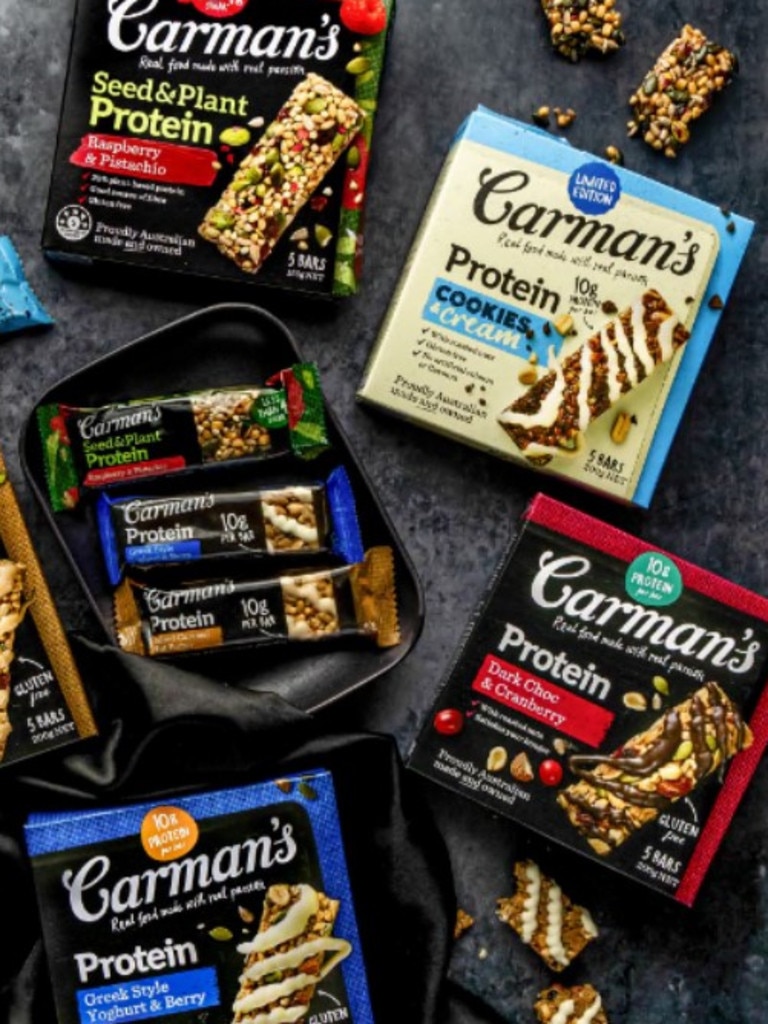Dietitian rates the top supermarket snacks
With entire aisles dedicated to different types of snack food in the supermarket, a dietitian reveals how to spot the items that are a good pick nutritionally.
With entire supermarket aisles dedicated to different types of snack food, it can certainly be confusing as to which is a good option nutritionally.
With high protein, low carb, low sugar and gluten free options, there is a wide range of bars, bites, balls, twists and chips which all claim to be healthy options.
So, should you find yourself in need of something to tide you over to the next meal, as a dietitian, here are my top supermarket snacks and why they standout nutritionally compared to other foods.
MunchMe Pumpkin Seed
While snack foods are generally processed foods, in the case of the range of MunchMe seed and nut bites, the pumpkin seed variety in particular are minimally processed and made of just a handful of ingredients. Of particular nutrition interest is the exceptionally high amount of protein per serve at 8g, along with a hearty dose of plant-based omega 3’s thanks to the high proportion of pumpkin seeds, all for just 2g of sugars per serve.
YoPro Yoghurt Pouches
When it comes to make nutritionally balanced and satisfying snack choices, you can’t go past whole foods and for this reason, yoghurt is always a smart go-to. Even better is one of the growing ranges of higher protein yoghurts which offer upwards of 15g of good quality protein per serve courtesy of the concentrated amounts of milk used to make these yoghurts, along with no added sugars for fewer than 100 calories per serve. When enjoyed with a piece of fruit you have a perfect high protein, high fibre snack that will fill you for at least a couple of hours.

Carman’s Nut Bars
One of a handful of nut-based snack bars with a relatively clean ingredient list, 5g of protein and less than 5g of added sugars per bar. The other key standout of this range compared to other nut bars is that this range has a much higher proportion of nuts other than peanuts, including almonds and hazelnuts and which improves the overall nutrient profile and range of good fats we add to the diet.


The Bar Counter Protein Bars
While technically ultra processed, of all the protein bars available this is one of a small handful that come in well under 200 calories and with no added sugars, and offer more than 10g of protein per serve. A protein rich option to keep on hand when true hunger strikes and you can’t get your hands on any real food, plus they taste good, which can be hard to find in higher protein snack bars.
Roasted Fava Beans
Gaining popularity as a protein rich snack, not only are legume-based snacks high in protein, with a single 25g serve offering close to 7g of protein as well as no sugars and close to 2g of dietary fibre. These tasty morsels also come in a range of different flavours as well as in individual packs making them a perfect portion-controlled option to throw into your bag to grab when you are peckish as a much more nutritious option compared to rice snacks, chips and flavoured crackers.

Organic Roasted Seaweed
If you like it, not only is seaweed extremely low in calories but it is a rich natural source of the nutrient iodine which is crucial for thyroid health, and a nutrient that many Australians do not get enough of in their diet. A low calorie and gluten free addition to any snack, or when you feel like a crunchy snack that is much better for you than chips or flavoured crackers.
Cheese and Crackers
When you look at the nutritionals of a cheese and cracker snack, you have the perfect mix of a controlled portion of carbohydrate and a source of protein, all for just 150 calories, along with a decent serve of calcium. When you can, opt for the more rustic crackers which are slightly better nutritionally compared to rice crackers and water crackers.
Susie Burrell is a dietitian and nutritionist and holds a Master’s degree in coaching psychology.






